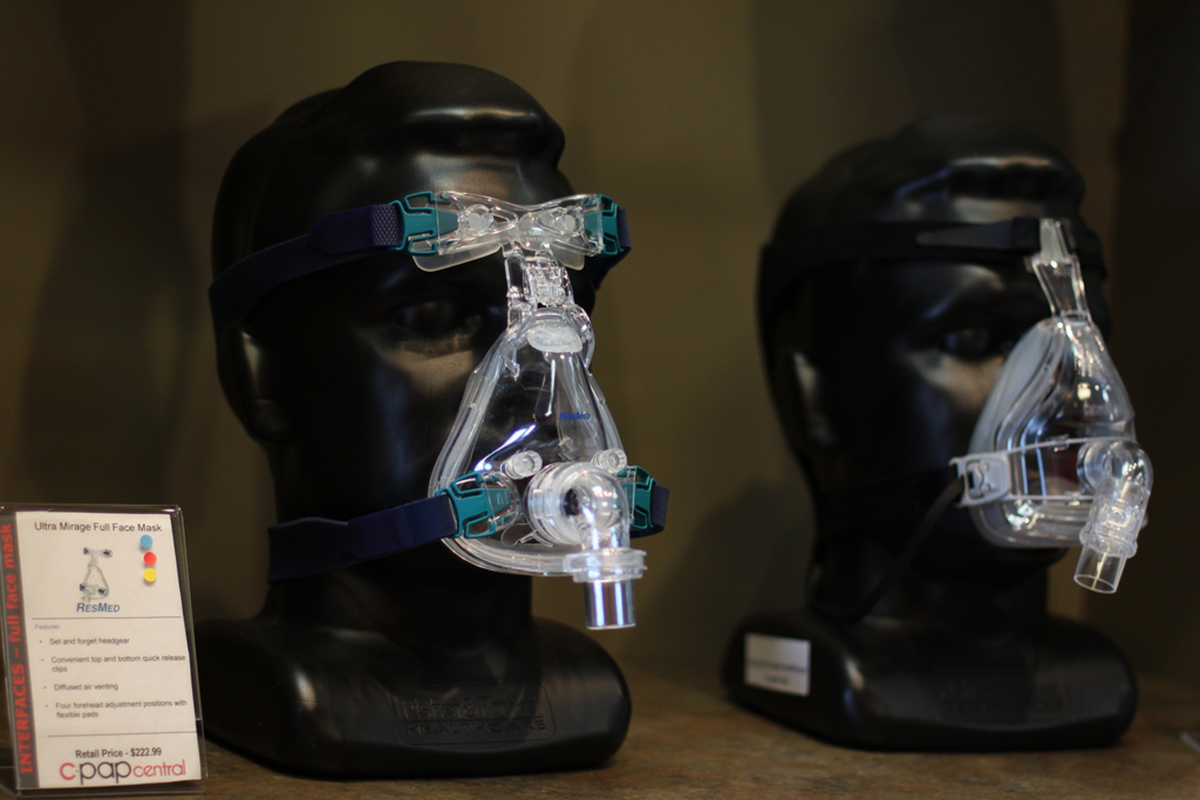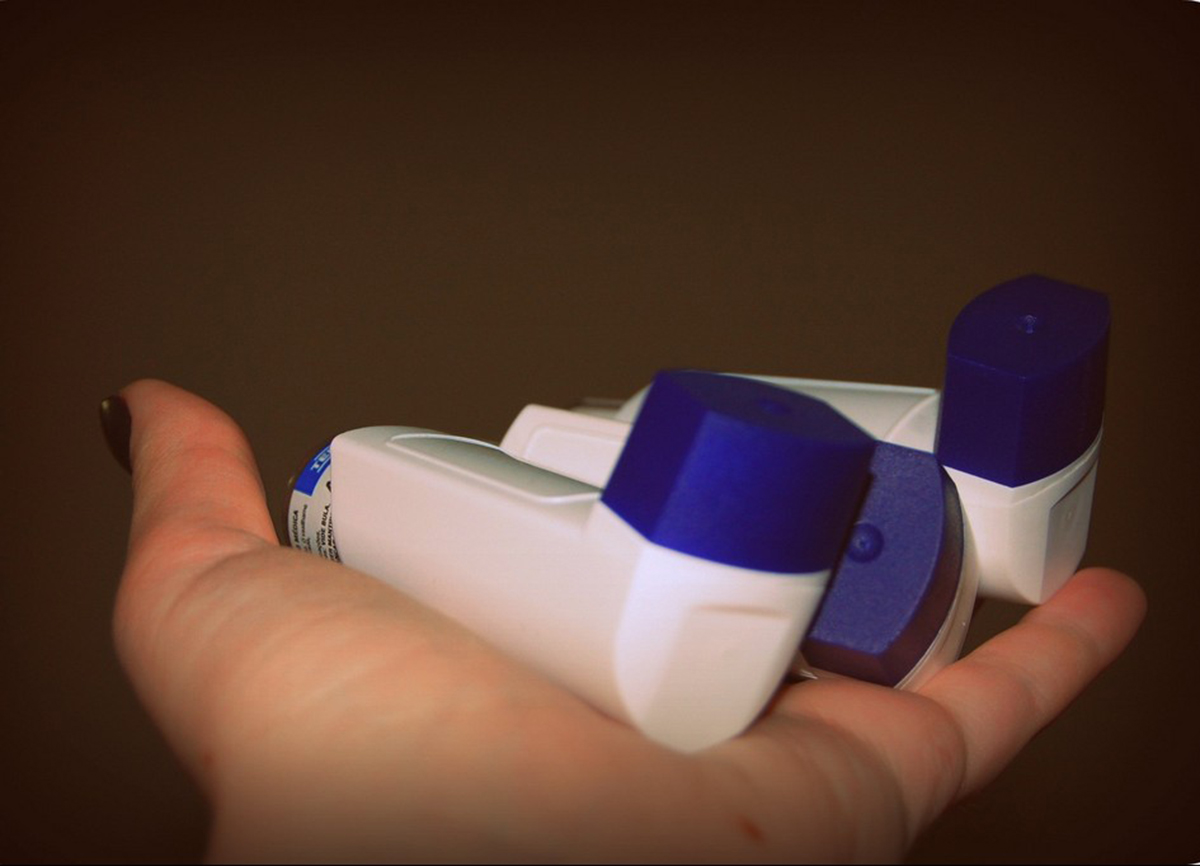College professor Mikhaila Rister seldom got a good night's sleep.
She often needed to work late into the night grading papers, but sometimes her asthma got the better of her. Then when she tried to lie down for some much needed rest, the sensation of a tight band on her chest from asthma made sleep impossible.

Diagnosed with asthma at the age of 8, Dr. Rister had been using steroid inhalers about as often as the instructions allowed (or occasionally more often) for decades. When her doctor also discovered that she suffered sleep apnea, however, treatment of sleep apnea with a CPAP machine resulted in tremendous remission of her asthma symptoms.
After years and years of suffering asthma, finally there was a drug-free way to control the symptoms of her disease. And thanks to an ongoing clinical trial, soon this method may also be available to asthma sufferers who do not suffer sleep apnea.
CPAP for Asthma
Dr. Mario Castro, professor of medicine and pediatrics at Washington University School of Medicine in St. Louis, Missouri, is leading a clinical trial of the use of CPAP for treating asthma. The way CPAP works, Castro explained to reporters affiliated with the Ivanhoe news service, is by allowing the muscles lining the lungs to relax during sleep.
Muscles are forced to relax as the machine does some of the work of breathing. Originally designed to treat periods of complete breathlessness during sleep known as apnea, CPAP can also give some people with asthma the rest they need to deal with the next day, without the need for medications that have onerous side effects including water retention, loss of immune resistance that leads to more colds and flu, and osteoporosis.
How to Get CPAP for Asthma
Right now, there are only two ways to get a prescription for the CPAP machine that can be used for treatment of asthma as well as sleep apnea. The traditional route, which is covered by most health insurance plans, including all the plans (at least in theory) offered under the Affordable Care Act, is to present the symptoms of sleep apnea, have an overnight sleep study at a center specializing in apnea care, and then a calibration and fitting for the CPAP machine itself (usually done the same night as the study). When not covered by insurance, this procedure typically costs about $2000.
See Also: What Is Asthma?
CPAP is not for everyone. Some people never get over the closed in feeling they have when using the mask, and if the mask is not properly fitted, friction burns can be a problem. The machine has to be carefully cleaned to prevent infections. And not everyone can get a prescription for the machine. However, there are other drug-free methods for reducing the severity of asthma.
Drug-Free Alternatives To CPAP For Asthma
If you do not qualify for CPAP (yet, although the rules are likely to change in the next year or two) and you don't want to take more and more medication, try these methods for strengthening your lungs to reduce your symptoms. None of these methods will allow you to throw your inhaler away, but all of them may make living with asthma just a little easier.

- Try Provent Sleep Apnea Therapy, made by Theravent Inc.. Provent looks a little like tiny bandages to place over each nostril. A valve in the middle of each of the devices produces air pressure that keeps the throat open. A month's supply costs about $70, and maybe covered by medical insurance (usually after you have met your deductible for the year). Discuss the use of this device with your doctor first.
- Use the Buteyko breathing device daily. This inexpensive device (some versions cost less than US $20) helps build up breathing capacity and reduce the frequency and severity of attacks. The device really works. The only problem is that it is rare for people to have the self-discipline to use it every day. Used faithfully, however, Buteyko can also help lower blood pressure.
- Learn to play the didgeridoo. In case you're saying "Learn to play the didgeri-what?" the didgeridoo is a musical instrument of the aboriginal peoples of Australia. Traditionally made from bamboo or eucalyptus, the didgeridoo consists of a hollow pipe 3 to 10 feet (1 to 3 meters) tall. Producing a sound requires continuous air pressure, and learning to fill the instrument with a continuous stream of air enables some players to fill their lungs with a continuous stream of air during sleep.
- Lose weight. The less your belly fat presses down on your lungs, the easier it is to breathe. A BMI greater than 35 (being more than about 30% overweight) aggravates both asthma and sleep apnea, and losing weight sometimes works wonders.
See Also: What's New In Asthma Treatment?
As this article is being written, non-smokers between the ages of 15 to 60 with history of asthma are being south at 19 centers across the US, including: University of Arizona at Tucson, University of California, San Diego, National Jewish Health (Colorado), Nemours Children Clinic (Florida), University of Miami, University of South Florida (Tampa, FL), Illinois Consortium: Northwestern University, St. Vincent’s Health (Indiana), LSU Health Science Center, University of Missouri-Kansas City School of Medicine, Washington University School of Medicine (Missouri), New York Medical College, New York City Consortium, North Shore-LIJ Medical Center (NY), Duke University Medical Center, The Ohio State University, Baylor College of Medicine (Texas), Northern New England Consortium (Vermont), and University of Virginia. Call the American Lung Association at 1-800-586-4872 for more information on how to apply to participate in the clinical trial.
- Esquinas AM, Özyılmaz E, Pravinkumar E. Obstructive sleep apnea and asthma: is it just a matter of CPAP. Tuberk Toraks. 2013. 61(3):250-1.
- Photo courtesy of Rachel Tayse by Flickr : www.flickr.com/photos/11921146@N03/6981942677
- Photo courtesy of Ana Maria Dacol by Flickr : www.flickr.com/photos/polentafria/5036263286


Your thoughts on this